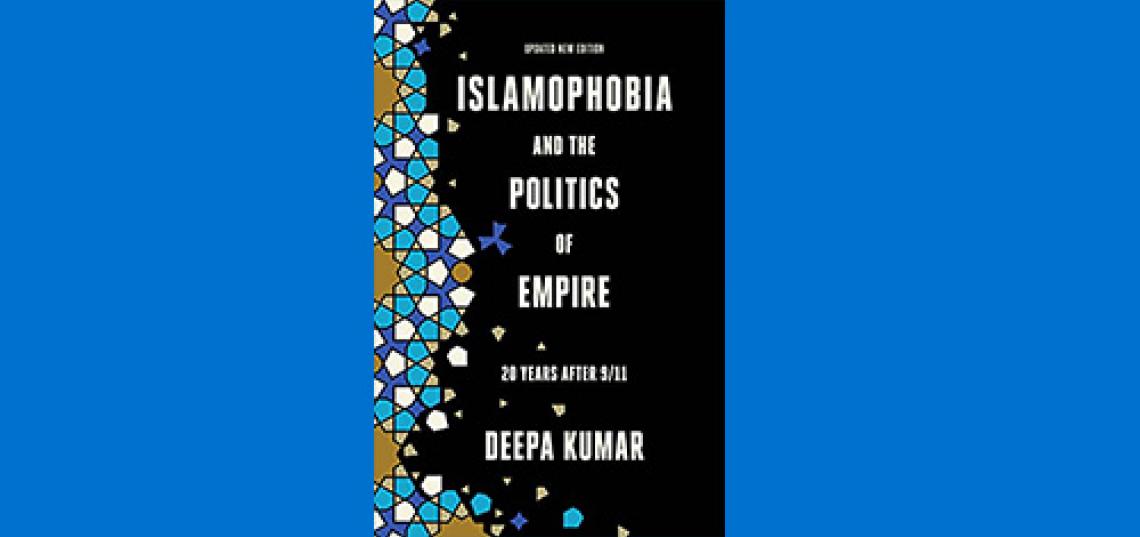
“My argument is: it’s not enough to understand Islamophobia simply as hate crimes, although hate crimes do exist. It’s not enough to understand it as religious intolerance or microaggressions, or hate speech, although we do know all this exists. Instead we must look at the roots of where it comes from,” Professor of Journalism and Media Studies Deepa Kumar told DemocracyNow! in an interview about the newly revised edition of her book “Islamophobia, The Politics of Empire, Twenty Years After 9/11.”
The new edition of “Islamophobia,” according to the publisher, is “An innovative analysis of anti-Muslim racism and empire,” and it argues that “empire creates the conditions for anti-Muslim racism, which in turn sustains empire.”
In the interview with DemocracyNow!, Kumar said it is important for Americans to understand the racist logic employed by the national security establishment in its targeting of Muslims both inside the U.S. and around the world.
Kumar argues that anti-Muslim racism is structural. The failure to understand how counter-terrorism policy creates a suspect community leads Americans and others to accept “the rhetoric coming from people at the top of society.” She pointed out that former President Bush argued that ‘This is not a war on Islam, it’s about the extremists.’ Former President Obama, she added, was an extremely sophisticated orator and talked about how ‘Muslims are such a deep part of American society, and that Muslim civilization contributed to world history.’ However, the policies of both these presidents were deeply racist, she shows in her book.
On DemocracyNow! she explained: “The FBI sends agent provocateurs into Muslim communities to entrap vulnerable people with things like giving them cash, and of course immediately after they set them up, they nab them. What is the logic here? The logic is that all Muslims are ‘potential terrorists’ and therefore we should arrest them before they do anything.”
Obama’s counter-radicalization program, Kumar said, “is about trying to recruit people from the Muslim community: Imams, schoolteachers, coaches, and others to spy on their own community. Again, the idea is that there are people in the Muslim community that we should arrest before they do anything. Same with the ubiquitous surveillance program.”
The newly revised book also includes an examination of the policies of former President Trump, and, according to the publisher, the book “offers a clear and succinct explanation of how Islamophobia functions in the United States both as a set of coercive policies and as a body of ideas that take various forms: liberal, conservative, and rightwing. The matrix of anti-Muslim racism charts how various institutions—the media, think tanks, the foreign policy establishment, the university, the national security apparatus, and the legal sphere—produce and circulate this particular form of bigotry. Anti-Muslim racism not only has horrific consequences for people in Muslim-majority countries who become the targets of an endless War on Terror, but for Muslims and those who ‘look Muslim’ in the West as well.”
Learn more about the Department of Journalism and Media Studies at the Rutgers School of Communication and Information on the website.
Image: Courtesy of Deepa Kumar
